'I think the power station was a lovely building'
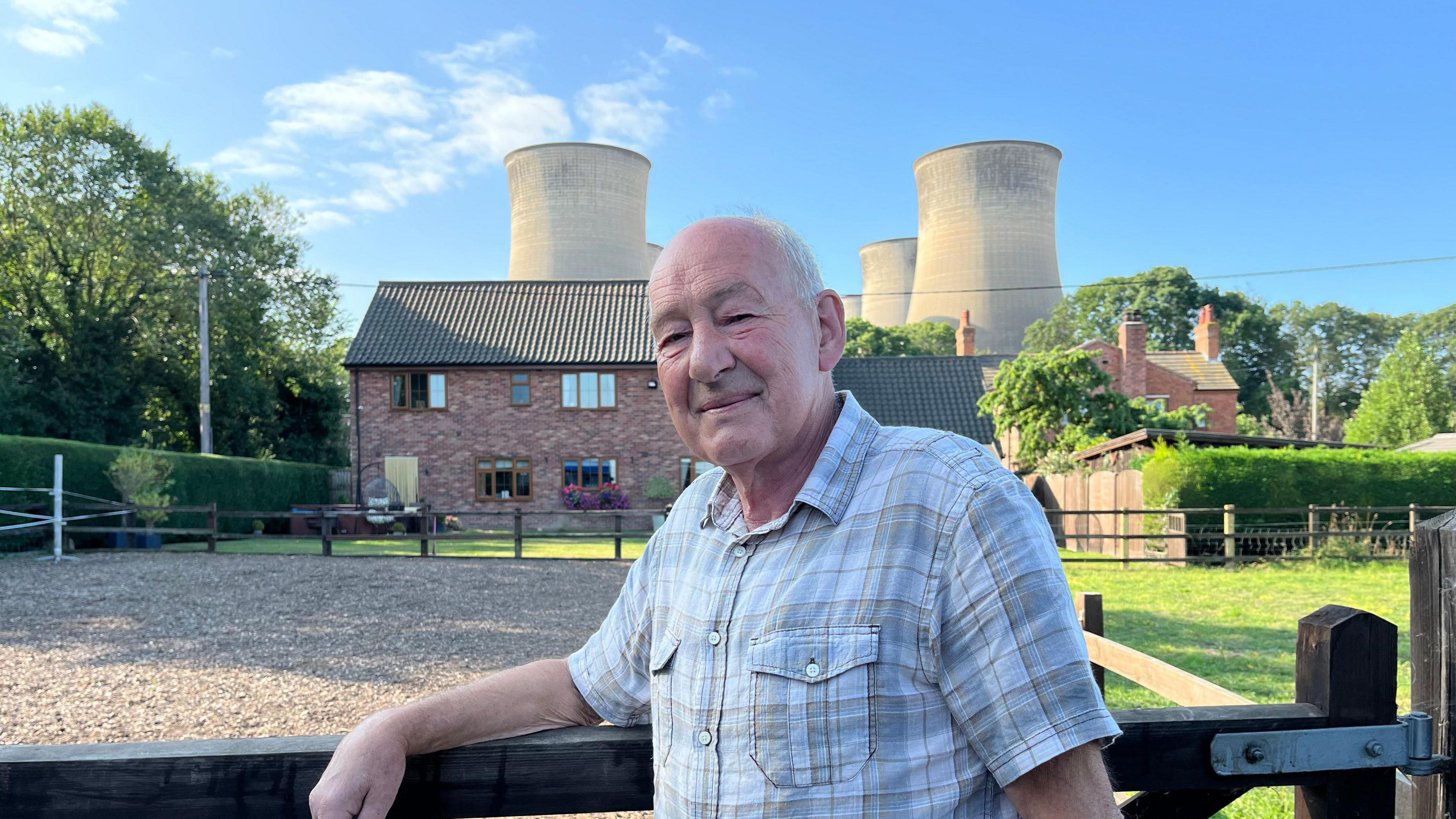
Alf Jaworski says he will miss the towers now they are gone
- Published
For more than 55 years, the cooling towers at Cottam Power Station stood as a landmark of north Nottinghamshire's industrial heritage and might.
It opened in 1968, and at its peak employed 750 people and produced 2,000 megawatts - enough to power 3.7 million homes.
Now the towers have been demolished, with all eight coming down simultaneously in what is a new Guinness World Record.
For Alf Jaworski, who lives in Cottam, the loss of a local landmark will take some getting used to.
Demolition "history" was made when the eight cooling towers were brought down
"We have lived here for eight years and they sort of grow on you," said Mr Jaworski.
"I'm going to miss them really, because I think the power station was a lovely building.
"The power station grows on you. If you go away, you look at the towers and you think 'not far, soon be here'."

People travelled from across the country to watch the moment the towers came down
Rikki Isgar, explosive demolition manager for Brown and Mason, led the project to bring down the towers, and had the honour of pressing the button.
His team's work earned a Guinness World Record for bringing down the most cooling towers in a simultaneous operation, something he said was a proud achievement.
"It's been a long process, but there was a lot of hard work that went into the modelling and preparation works, and it was obviously a finale that won't be matched hopefully in a long time," he said.
"Obviously getting the world record as well is quite an experience... it was the reward for all the hard work that the entire team had put in across so many months."

Rikki Isgar had the honour of pressing the button
Elizabeth Tilstone, who lives in nearby New Ollerton, was one of the crowd of photographers preserving the collapse for posterity.
"When the Ollerton pit was demolished I was working, so I couldn't see that - this one is another landmark, and I didn't want to miss that," she said.
"I feel a bit sad in one way, because it's been here for a while, and once it's gone the landscape is different... but we've got to change with the times."

Elizabeth Tilstone said she wanted to mark the occasion
Chris Birkett worked at Cottam for 13 years from 1985, before moving to the gas turbine station next door.
Now living in New Zealand, he interrupted a family holiday to see the demolition.
"I thought it would be worth coming and seeing, to say goodbye to the old girl," he said.
"It's the end of an era - they were cathedrals of power, we're not going to see the likes of those again."

Chris Birkett used to work at Cottam between 1985 and 1998
After watching the wind take the dust from the demolition away from his home, 72-year-old Mr Jaworski said it was poignant to watch the towers that dominated the skyline get reduced to rubble.
"All I can see now is dust," he said.
"It's just a shame... I'd like to have seen them stay."
Additional reporting by Liam Barnes and Dan Martin
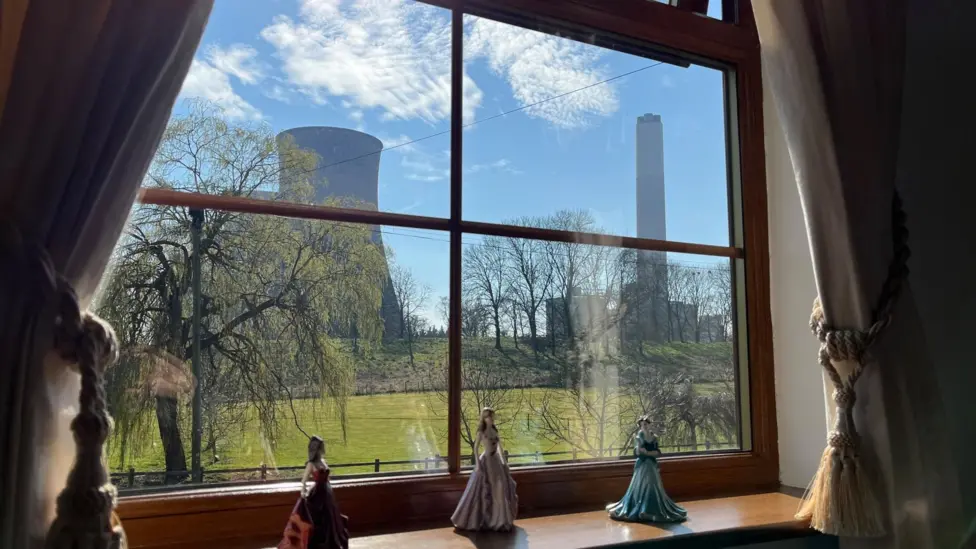
Mr Jaworski will no longer be able to see the towers when he looks out of his window
Get in touch
Tell us which stories we should cover in Nottingham
Follow BBC Nottingham on Facebook, external, on X, external, or on Instagram, external. Send your story ideas to eastmidsnews@bbc.co.uk, external or via WhatsApp, external on 0808 100 2210.
Related topics
- Published20 March
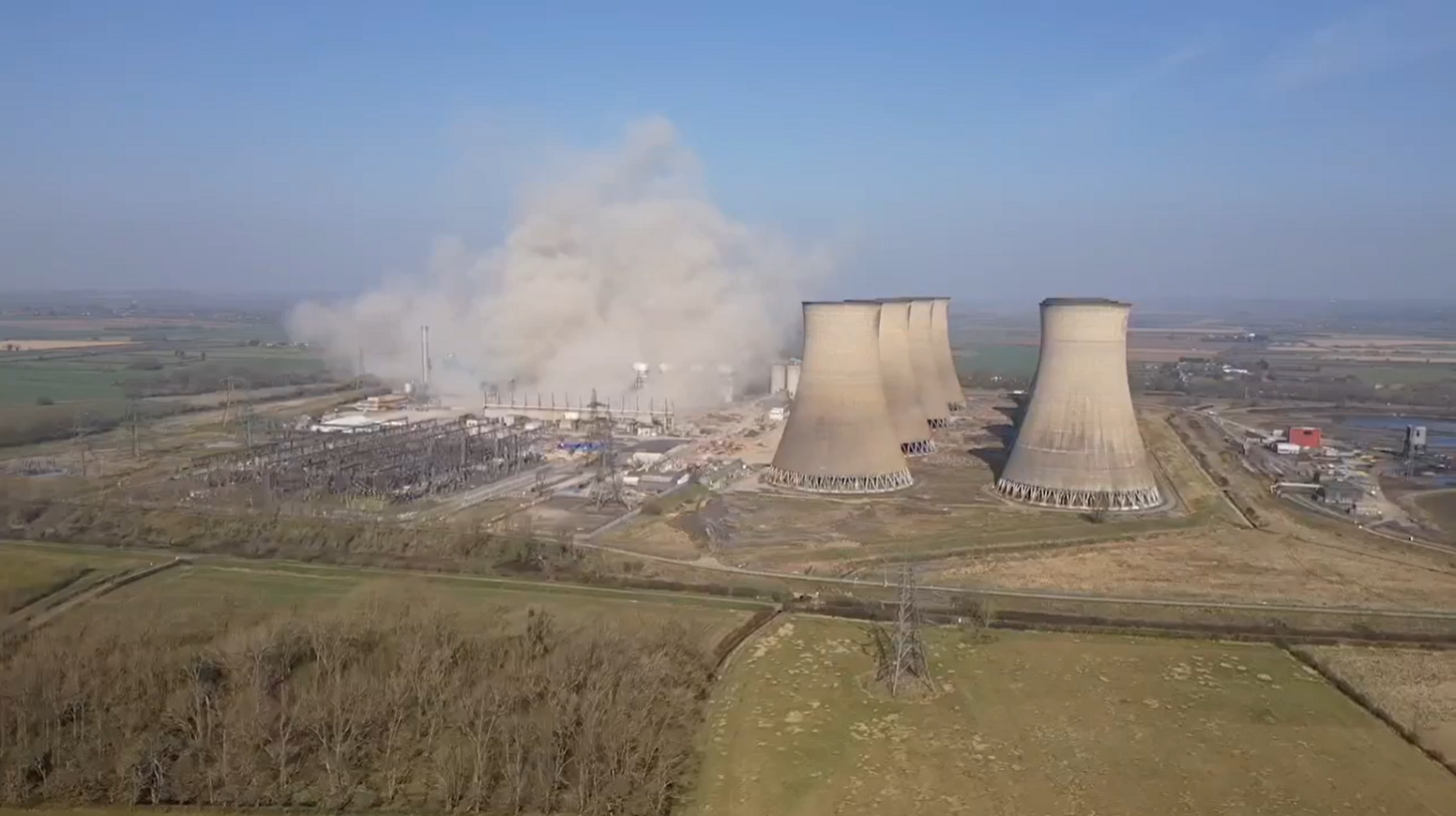
- Published21 March
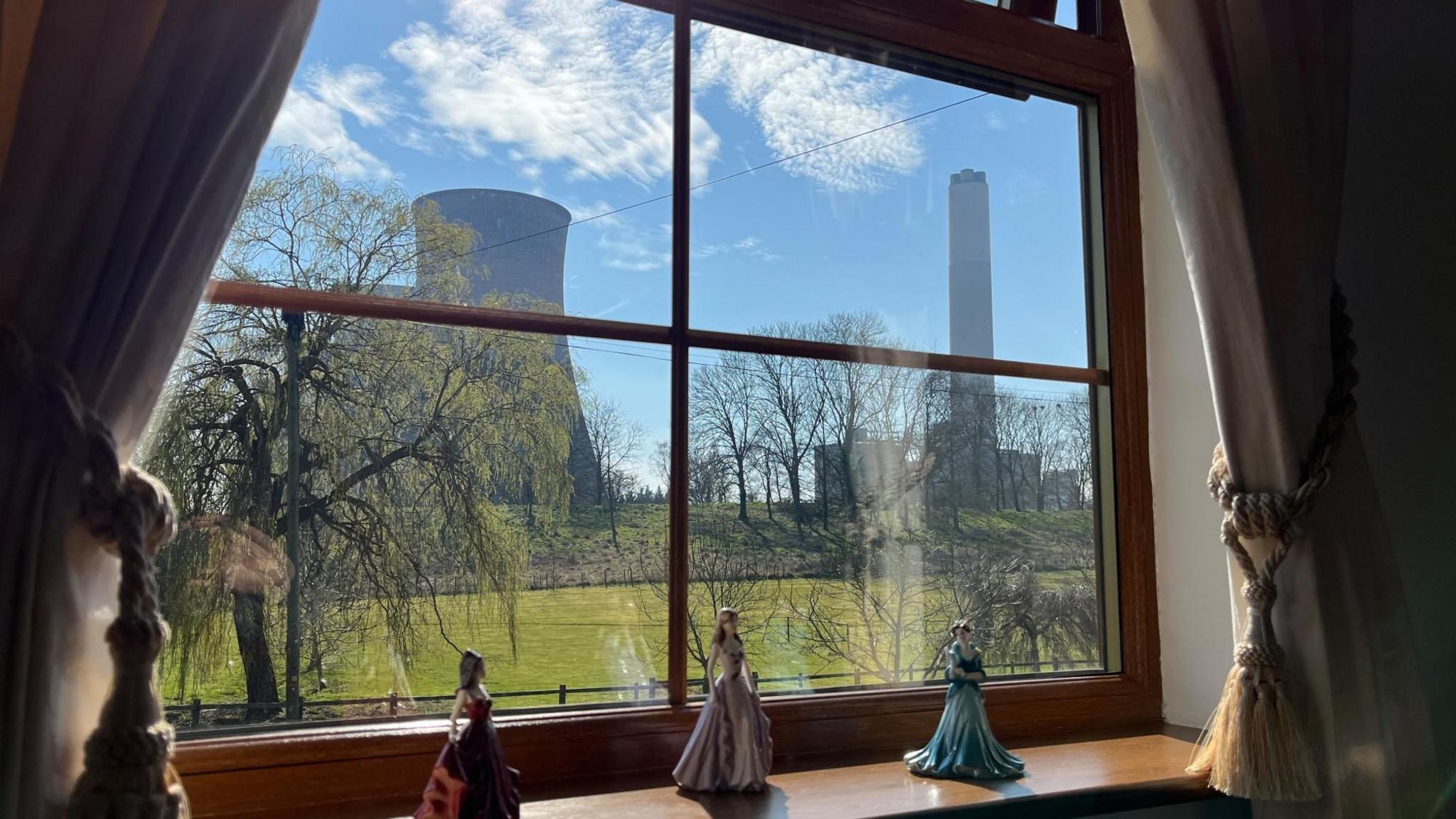
- Published30 September 2019
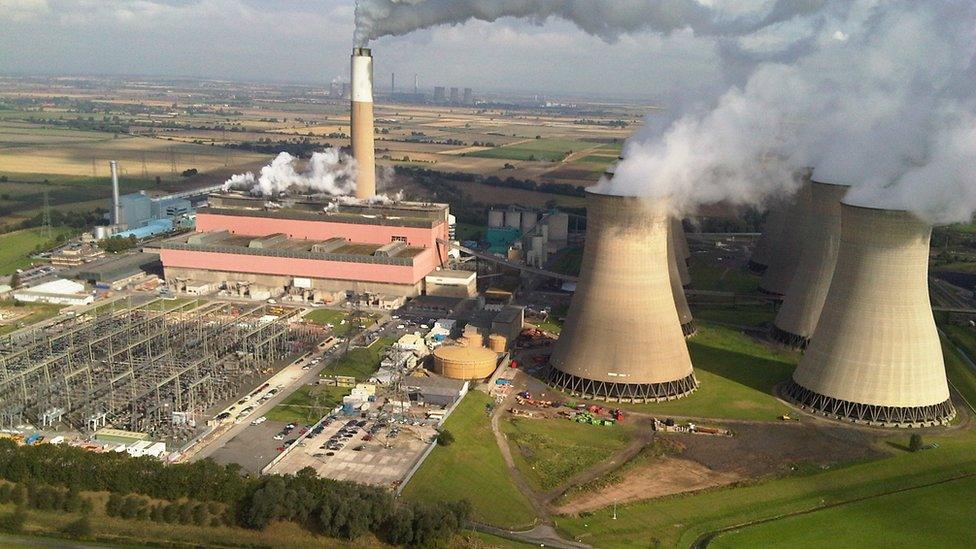
- Published20 August 2017
